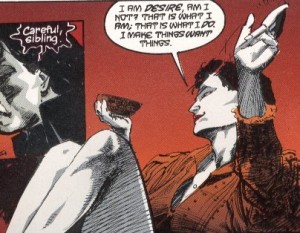“She was free. Is that you flying over the fields with the wind under your wing? Why didn’t I trust you? Am I any better than Elgin? Now you’ve made fools of us both and sprung away. The snare didn’t close on you. It closed on us” (172).
This passage is particularly interesting for several reasons. Throughout the course of the novel, the narrator has made use of many different pronouns, such as he, she, her, and you. Beforehand, the “you” was seemingly used to address the reader but, in this passage, the narrator is referring to Louise. In addition, there are two different metaphors of Louise as a bird and then as a rabbit or other small critter. A significant aspect of this quote is that the narrator draws a comparison between him/her self and Elgin, who has been presented as a damaging character incompatible with Louise, given her wildness and exotic aura. Given the comparison between the narrator and Elgin, the narrator hints that he/she and Louise may be incompatible with one another as well. Another significant aspect is that the narrator implies that Louise is free of him/her and Elgin, so the narrator may admit that his/her relationship with Louise may not have ultimately been healthy.
This passage again hints at how the narrator is envious of Louise’s autonomy. Louise does not stay with Elgin, who could heal and support her, even after the narrator leaves. Louise also does not seek out the narrator until the very end of the novel, thus leaving the narrator to fret and worry for months. The narrator also spends a lot of time reflecting on and remembering past lovers and relationships, hinting that he or she feels trapped by these memories, for they can elicit feelings of regret, sadness, and even self-hatred, such as on page eighty-three, where the narrator says “I air my scruples now but it didn’t stop me at the time. I do despise myself for that.”
This book could be broken up into different sections; initially, the narrator talks about his or her past relationship with Bathsheba, which then led to him or her dating Jacqueline, who seemed like a “safe” alternative. The narrator then meets Louise, but the two are hardly spent time together when the narrator leaves and spends the rest of the novel regretting that decision and missing Louise. The narrator implies that he or she is a fool, while Louise is “free.” As was mentioned before, Louise could be free from several things: life, an unhappy marriage with Elgin, her disease, society, or the narrator. The narrator, however, is not really free from anything; he/she spends much of the novel reminiscing about old flames yet does not disclose many personal details. Thus, the narrator chooses to define him/her self by these past relationships. In a way, letting go of these relationships implies a loss of self and identity for the narrator. This explains why the narrator continues to pine over Louise despite the lack of contact and the probability that Louise has passed away. Because the narrator continues to be attached to Louise and the past lovers, one could say that the narrator is a fool. Earlier in the novel, the narrator referenced some “friends” who stated that the narrator was foolish for becoming involved with a married woman again. To conclude, this passage reflects how Louise is a very autonomous character, a quality which the narrator envies as he/she is entrapped in a cycle of love and love lost. 